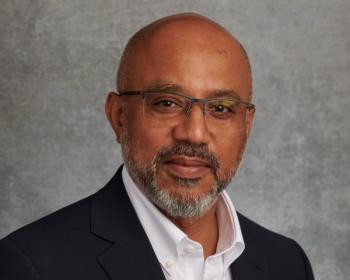
The Minnesota nurses strike is over, but there’s still no deal
About 15,000 nurses engaged in a three-day strike last week. Talks are slated to resume this week, but the nurses’ union and hospitals remain apart on key issues.
The Minnesota nurses’ three-day strike may be a memory, but the contract dispute has yet to be resolved.
About 15,000 nurses with the Minnesota Nurses Association walked off the job for three days last week. It was perhaps the largest private-sector nurses’ strike in the nation’s history.
Nurses went on strike at 15 different hospitals. The nurses’ union is embroiled in contract disputes with seven different health systems that operate the hospitals.
“The support of the nurses for their contract, the support of the nurses for their nurses, the support of the nurses for their community, is overwhelming,” Mary C. Turner, president of the Minnesota Nurses Association and a registered nurse at North Memorial Hospital, said at a press conference last week.
“We are out here not only for our own contract but for our very profession,” she said.
The dispute has been closely watched nationwide and gained intense
Talks are slated to resume this week, the union and health systems say. The health systems and nurses appear to be far apart on key issues.
‘Not economically feasible’
The Twin Cities Hospitals Group, which represents four healthcare organizations in the dispute, called for a mediator to help get a deal, but said the union has refused. The nurses’ contract with Twin Cities expired May 31. Contracts at other hospitals expired June 30.
Twin Cities said in a
“Increases like this would cost hundreds of millions of dollars across Twin Cities Hospitals and are not economically feasible or responsible to our community members who would ultimately pay the price,” Twin Cities said.
Twin Cities said the hospitals have proposed increases of 10% to 12% over those three years, along with step increases that would add 3%, on average, to nurses’ pay.
“We anticipate further negotiations over wages and await the nurses’ union responses to our wage proposals,” Twin Cities said in its statement.
Allina Health, which operates four of the hospitals involved in the walkout, said that the system will resume talks with the nurses on Wednesday, Sept. 21.
"We are committed to working with the union on a contract agreement that not only recognizes the contributions of our nurses, but also honors our commitment to our patients and communities," Allina said in a statement. "As we have said all along, strikes do not benefit anyone and only hinder our efforts to negotiate in good faith."
Allina said it has offered nurses a wage increase of 12% over the three years of the contract, but said nurses are seeking a 30% increase.
"Based on MNA’s proposed 30% wage increase over the 3-year contract, as well as 30 additional economic proposals, it is clear that agreement on an economic package is the significant issue," Allina said. "We hope to see more progress on issues that are important to both parties at our upcoming bargaining sessions."
Like many hospitals, Allina has struggled financially this year. In the first half of 2022, Allina lost $72 million.
Hospitals around the country have reported
‘A public health crisis’
Nurses contend the hospitals have been unwilling to negotiate in good faith to deal with staffing and retention issues.
“When our executives refuse to fully staff our hospitals and continue to push nurses out of the profession, that is a public health crisis,” Turner said last week. “I hope the collective action of 15,000 nurses this week shows our CEOs that we are serious about solving this crisis – and I hope hospital executives will finally join us to work towards solutions.”
The nurses’ union has said it’s seeking better pay, but nurses said the dispute goes beyond dollars and cents.
The union also said it is looking for a greater role in staffing decisions at the hospitals. The union contends nurses should have a bigger voice in scheduling to address chronic understaffing, leaving nurses overworked. During the three-day strike, nurses held signs saying, "Patients before profits."
Chris Rubesch, first vice president of the Minnesota Nurses Association and a registered nurse at Essentia Duluth, chastised hospital executives for failing to negotiate even as they command high salaries.
“Hospital executives are closing facilities and charging patients more while taking home multi-million dollar salaries,” he said. “This week, thousands of Duluth and Superior nurses joined nurses across the state to demand that hospital executives put the focus where it belongs in our hospitals: on patient care at the bedside, not the bottom line.”
Nationwide, nurses have said substandard working conditions are driving nurses away from hospitals. Increasingly, some nurses say
Two out of three nurses (67%) have said they intend to leave their position within three years, according to the AACN report, and 36% of those nurses said they would leave within the next year. Nurse leaders have said hospitals should consider
Turner said last week that a sticking point in the dispute is a union demand that hospitals shouldn't change staffing unless 50% of the nurses on a floor approve of the revised schedule.
“They don’t want to agree to that," Turner said. “I say, if you can’t convince 50% of your nurses to a staffing change, then maybe you shouldn’t make it.”
Minnesota nurses have said they are seeking provisions to improve workplace safety. Nationwide,
Several hospitals have reached tentative agreements on workplace safety measures, Twin Cities said. Some Twin Cities hospitals said they’ve reached agreements on measures to improve diversity, equity and inclusion, another key concern of nurses.
Allina also said it has made progress on some union priorities, including workplace safety and diversity measures.































